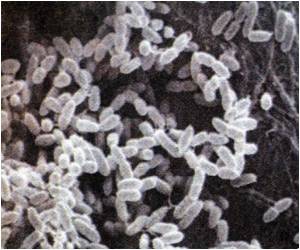Researchers are developing a promising new antibiotic treatment for MRSA and Clostridium difficile infections.

The company has selected the compound, MGB BP-3, as a drug candidate for formal pre-clinical development, with clinical trials now scheduled for 2012.
The compound acts in minor grooves, found within DNA structures, and has potential to act as an agent against bacteria including C. diff. and MRSA.
C. diff. was involved in more than 3,000 deaths in the UK in 2010.
The findings of the research are being presented on Monday, 19 September, at the 51st Interscience Conference on Antimicrobial Agents and Chemotherapy (ICAAC), held in Chicago.
Dr Miroslav Ravic, Chief Executive Officer of MGB Biopharma, said: "It seems we are hearing too much about Clostridium difficile infections these days in the press, especially those acquired in hospital by elderly patients in whom the infection can be fatal.
Advertisements
"We are committed to developing a specific oral drug for the treatment of Clostridium difficile infections in addition to the progress we are making with an IV drug against MRSA."
Advertisements
"We have come up with strong compounds which are capable not only of clearing the infections but also of stopping them. We believe this could be a significant step forward in tackling these dangerous infections."
Professor Curtis Gemmell, Consultant Microbiologist, Research Professor at the Strathclyde Institute of Pharmacy and Biomedical Sciences and Emeritus Professor at the University of Glasgow, is a senior member of the research team. He said: "The fact that our drug candidate shows greater efficacy than vancomycin is extremely promising for its future. The fact we are making this presentation at ICAAC underscores the importance that our scientific peers attach to our findings."
Source-Eurekalert









